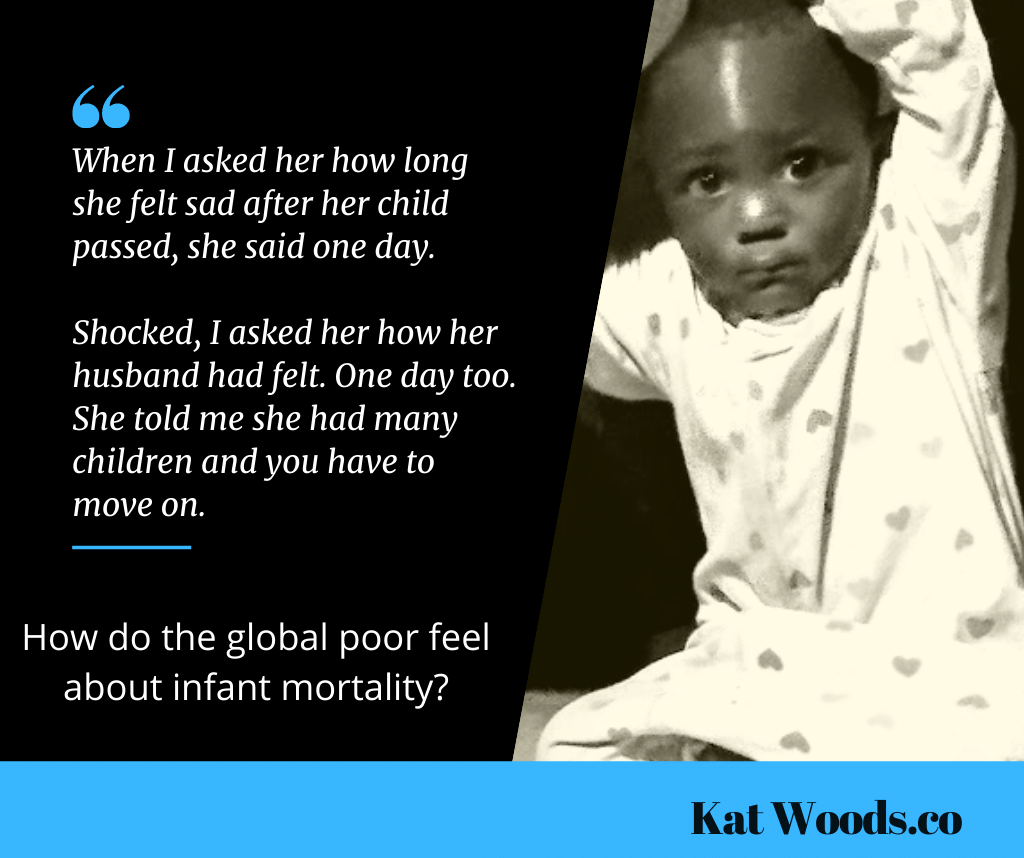|
This is part of a series where I write about my stay in Rwanda and Uganda and what I learned that might be helpful from an EA perspective.
You can see the full list of articles here, which I will add to as they come out. So far I have only spoken to two women in Rwanda who have lost children and the results were very surprising. One had lost one baby, the other had lost three babies and one child of eighteen years old. When I asked the first how long she felt sad after her child passed, she said one day. Shocked, I asked her how her husband had felt. One day too. She told me she had many children and you have to move on. The other seemed similarly unphased by losing the three babies. She didn’t give me a number of days, but she said she didn’t feel sad for very long. However, when she lost her 18 year old son, she said she fell into a depression that lasted a year and clearly talking about it in the present still made her feel quite upset. This line of inquiry is interesting if you have an Epicurean view of death, where death is only bad for the people who are still alive. For the person who passes away, they do not suffer for being dead as they do not exist. If you take this view, then preventing neonatal death might not hold as much weight as previously thought because losing a very young child has less effects on the family than losing an older one. Of course, this is a sample size of two, goes against strong priors, and could vary a lot region to region. It could also be that I am asking the wrong questions and others would give very different results. As such, I would only very minorly update based on this. If you liked this post you might also like:
0 Comments
Leave a Reply. |
Popular postsThe Parable of the Boy Who Cried 5% Chance of Wolf
The most important lesson I learned after ten years in EA Why fun writing can save lives Full List Kat WoodsI'm an effective altruist who co-founded Nonlinear, Charity Entrepreneurship, and Charity Science Health Archives
June 2024
Categories |
Proudly powered by Weebly

 RSS Feed
RSS Feed